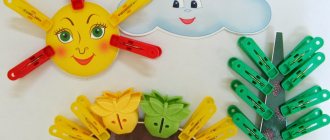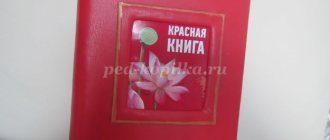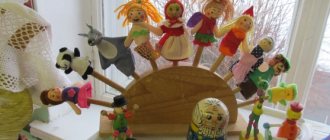Pros and cons of the librarian professionWhere to studyLibrarian coursesLibrarian salarySalary as of 10/07/2020
A librarian is an employee who takes part in the acquisition of library collections, the creation of catalogs, reference and information collections, the popularization of literature and reading, and, of course, serves library visitors. The latter includes assistance in choosing books and periodicals, filling out the necessary documents (in paper and/or electronic form), and holding thematic events. This profession can be classified as “person-person” or “person-sign system”. The profession is suitable for those who are interested in Russian language and literature (see choosing a profession based on interest in school subjects). In 2020, the ProfGid career guidance center developed an accurate career guidance test. He himself will tell you which professions are suitable for you, and give an opinion about your personality type and intelligence.
Features of the profession
Different libraries attract visitors in different ways. For example, large institutions with an impressive collection of literature in various genres can provide readers with those publications that are not found in the public domain. Many libraries have begun to distribute free Wi-Fi within their walls and have equipped comfortable and cozy reading rooms where people can not only read books, but also work on a laptop. Not to mention the fact that most institutions now have electronic catalogs and even computers that visitors can use. At the same time, the average duties of a librarian can be described as follows:
- Collection of library collections and care for them. We are talking about the safety of books, audio and video materials, compliance with the rules for their storage, timely replacement of worn-out publications, etc.
- Maintaining records of the library collection, as well as card files and other reference and information services.
- Processing of new literature entering the library (entering into an electronic database and paper catalogs).
- Placing orders for the purchase of new books in accordance with the needs of the institution.
- Serving visitors and filling out their library cards.
- Maintaining order in the reading room.
- Conducting seminars, exhibitions, lectures, meetings with writers and other events related to literature in one way or another.
Almost all modern libraries, especially in large cities, use modern computer equipment in their work. In some cases, it is duplicated by maintaining paper catalogs and subscriptions; in other institutions, a complete transition to electronic technologies has been made. Therefore, the modern version of who a librarian is is slightly different from the image associated with this profession 10-15 years ago. Today, such a specialist is required to have good command of computer resources and quick learning to use new software.
Librarian Responsibilities
Based on the foregoing, a librarian has a very wide range of responsibilities:
- work on storage and accounting of books, including work with library collection databases;
- digitization of documents, books, periodicals;
- reader consultation;
- monitoring order in reading rooms;
- maintaining special documentation;
- participation in events (conferences, forums, meetings).
Librarian training
There are several options for where to become a librarian. For example, if we are talking about secondary education, then you can pay attention to the specialty “Library Science” (code 51.02.03). To enter the college, a certificate of completion of the 9th grade of school is sufficient; applicants are selected based on their average score. Training lasts from 2 to 5 years, depending on the year of admission and the form of study (full-time, part-time, evening).
In universities, the specialties “Library and Information Activities” (code 51.03.06) and “Documentation and Archival Science” (code 46.03.02) are suitable for librarians. To enter, you must pass the Unified State Exam in Russian language, literature, history, social studies or a foreign language. Full-time education lasts 4 years, all other courses last 5 years.
Courses
MASPC (Interregional Academy of Industrial and Construction Complex)
The Interregional Academy of Industrial and Construction Complex (MASPK) offers the “Librarian” curriculum, intended for a wide range of students with higher or secondary specialized education. The educational course will allow you to master this profession in the shortest possible time, studying in a comfortable, remote mode.
IAEO (International Academy of Expertise and Evaluation) (remotely)
In this course, you can obtain the profession of a librarian remotely in 5 months and 9,000 rubles: - One of the most affordable prices in Russia; — Diploma of professional retraining of the established form; — Training in a completely distance format; — Certificate of compliance with professional standards worth 10,000 rubles. For a present! — The largest educational institution of additional professional education. education in Russia.
Universities
Orenburg State University
Documentation and archival science (Faculty of distance educational technologies)
Ural Federal University named after the first President of Russia B.N. Yeltsin
Documentation and archival science (Ural Humanitarian Institute, UrFU)
Russian University of Transport (MIIT)
Documentation and documentation support for management (Law Institute)
Russian State Humanitarian University
Documentation and archival science (Historical and Archival Institute of the Russian State University for the Humanities)
St. Petersburg University of Management Technologies and Economics
Documentation and archival science (Institute of Humanities and Social Sciences)
Reverse: Book Keeper
How does the job of a library employee work? What do they have to work with every day? Why will this profession never die? What is the romance and what is the difficulty? In honor of Book Day, our correspondent went behind the scenes of the library counter and found answers to all the questions.
"You need to love people"
When the time came to decide on her future profession, our heroine firmly decided to be a librarian. Dreams of becoming a teacher or archaeologist were eclipsed by a cozy picture from childhood: how the whole Agafonov family gathered in the evenings for their favorite pastime. There was always a large library in their house.
In 1992, Elena graduated from the Institute of Culture in Ulan-Ude and went to distant Chukotka. There she got a job at the Bilibino regional children's library. Two years later, fate returned her home to Ulan-Ude. She worked for ten years at the Garrison House of Officers at Divisionnaya station and several more at the Republican Children's Library named after. Abidueva. At one point, Elena decided to change her occupation and became a journalist. However, life put everything in its place, and a year ago she returned back, but already armed with new knowledge and a great desire to share it with colleagues. Today Elena heads the department of innovative development and methodological support of the Republican Children's and Youth Library.
According to our interlocutor, to be a librarian, first of all, you need to love people and books. And, working in a children's library, of course, children.
— In my childhood there were books by Chukovsky, Pushkin, Tolstoy and Yesenin. The first one I fell in love with was “The Secret with the Letter “B”” by Yuri Dyakonov. The books we read as children have the strongest influence on us; they shape us as individuals,” notes Elena.
A lot to be able to do and know
The librarian profession was born more than 4.5 thousand years ago and was originally male. The librarians were fabulist Ivan Krylov, mathematician Nikolai Lobachevsky, writer Vladimir Odoevsky, critic and art critic Vladimir Stasov. In the 19th century, becoming a librarian required knowledge of French, German, Latin and Greek. Even junior library staff were required to speak three foreign languages.
Naturally, no one makes such demands on modern representatives of this profession. However, he must be able and know a lot. As Elena says, today library staff are learning to work in the digital world. And the main difficulty here is that not all libraries in Buryatia are equipped with modern computers and not everywhere there is a good and stable Internet. By the way, the pandemic and forced self-isolation have clearly shown how important it is to be able to work online.
“A librarian is not just a custodian of books, but also a pilot in the flow of information”
Traditionally, the librarian was involved in the collection of materials, its description, storage and security of the book collection. But current realities dictate their own rules: library employees must be able to use a computer, copier, scanner, modem, video equipment, etc. As a result, to remain in demand, a modern librarian needs to be erudite, creative, easy to adapt and, most importantly, find contact with readers.
With all these requirements for a specialist, the profession also has its disadvantages: insufficient funding for libraries and low salaries.
- Of course, I would like more, this is a normal human quality. Over the years, salaries increase, but very slowly. And, unlike, for example, teachers, we work full time and do not have the opportunity to work part-time,” says Elena.
Profession “librarian”: Elena Agafonova dispels myths
1. A librarian is a person who only sits at the counter and gives out books
It is no longer enough for a modern librarian to know everything about a book, to be able to describe it, preserve it and pass it on to the reader. You need to be a psychologist, designer, sociologist, marketer and researcher. We already need to be able to justify the need to receive a grant, prove the feasibility and necessity of socio-cultural programs. And for this you need to have a broad professional and general outlook, scientific research skills.
Librarians began to hold many events and reach large audiences. We go to schools, kindergartens, colleges. And this requires having skills in speech culture, knowledge of etiquette, and the need to monitor one’s image.
There is always plenty of work to do in the library. The service department: arranging the fund, preparing events, including book exhibitions, consulting, working with debtors, studying the requests of our readers. Bibliographers provide information on user requests, write up articles, and maintain file cabinets and databases. The Acquisitions Department studies the book market, completes the library collection, and maintains an electronic catalogue. The methodological department is statistics, analysis, generalization of experience, the ability to see problems and successes of colleagues behind the numbers.
2. All librarians are elderly
Our team includes professionals with extensive experience, and there are also young colleagues. All are creative, competent and very interesting people. Of course, I would like more young people to come into our profession.
3. The profession of “librarian” is yesterday
No not like this. This myth is convenient for those who do not like to read. Libraries will change along with society and its needs, but they will definitely remain and become closer to their users. In my opinion, the most important person to be the center of attention is the person reading the book. A person who can read a book is not only able to put words into sentences. To be able to read is to be able to comprehend what you read.
4. The traditional book is losing its position. Soon all people will switch to electronic versions
I think that both the traditional book and the electronic version can exist perfectly with each other. It is important that a person reads and thinks about what he reads. And, if we talk about whether the traditional book will die, let’s remember the episode from the film “Moscow Doesn’t Believe in Tears.” Remember, one of the heroes there worked as a cameraman and assured that soon there would be no books, no theater, no cinema, but only continuous television? But years pass, and books, theater, cinema and television complement each other perfectly, and now the Internet has been added to them.
Some statistics
As follows from a survey by the All-Russian Center for the Study of Public Opinion, Russians have begun to read more over the past five years. In 2020, 53% of Russians read books, five years ago the figure was 45%. However, this is less than in 2020, when Russians read 55%.
Most often, women read books - 59%, young people from 18 to 24 years old - 83%, and from 25 to 34 years old - 61%. 68% of readers have higher education. At the same time, Russians buy books more (88%) than read them (53%).
30% of respondents prefer historical novels, the same number prefer books for children, and 28% prefer educational or scientific literature. 23% choose detective stories, 22 - books on housekeeping, 21 - science fiction, and 20% - classic Russian and foreign literature. Horror books are chosen by 3% of respondents, and the same number choose psychological literature. Religious literature is of interest to 2% of Russians.
For the majority of Russians (73%), a book is considered the best gift. Among domestic authors, 9% would recommend reading Pushkin, 6% - Tolstoy, 5% - Dostoevsky, 4% - Bulgakov and the same number - Lermontov. 35% could not recommend a specific author.
Marina Ermil
photos courtesy of the heroine of the publication, pixabay.com
Librarians about their profession
Life stories and reflections of employees of the Central Library System named after. N.G. Chernyshevsky about his profession.
Bykova Valentina Mikhailovna ...The profession of a librarian is complex and interesting. Complex because a librarian must be...Read more →
Ismagilova Marina Vagizovna ...My attitude towards the profession is rather ambiguous. On the one hand, it is socially significant, but on the other...Read more →
Kozhemyakina Victoria Anatolyevna Librarian is the most wonderful profession on earth! Librarian…Read more →
Irina Alekseevna Kolmakova I have always liked the librarian profession. But fate decreed that for 12 years I...Read more →
Lupareva Tatyana Aleksandrovna ...Now, having worked in the profession for about 40 years, I am amazed at its versatility. I am always admired by colleagues who...Read more →
Makarova Alla Konstantinovna The profession of a librarian is so multifaceted and unique that you can learn it throughout your entire adult life. Into this profession...Read more →
Nekrasova Tatyana Viktorovna ...For me, my profession is a hobby. My main passion in life, where you can show your most diverse...Read more →
Potapenko Irina Mikhailovna ...Konstantin Dmitrievich Ushinsky has this saying: “If you successfully choose work and put your soul into it, then happiness...Read more →
Pshenitsyna Tatyana Viktorovna ...My profession is unique. They write books about her, give her as an example, joke about her, and make films. Created images...Read more →
Solntseva Natalya Vladimirovna How do you get into the profession? Some by vocation, some at the insistence of their parents. It’s best if it’s…Read more →
Tkachenko Natalya Nikolaevna ...Reading has always been the best pastime for me, and a book is the best gift. As a child...Read more →
Ugryumova Elena Valerievna ...the most important thing in our profession is to love readers. Honestly, besides...Read more →
Fedorova Galina Yuryevna ...Working in a library is not only about issuing and receiving books. A modern librarian is good…Read more →
Tsapnik Elena Borisovna ...And for me, a librarian is a person who always strives for something new, an erudite...Read more →
Subacheva Victoria Viktorovna ...I can already say with confidence that this work is in harmony with my inner world, it brings...Read more →
Chechina Elena Anatolyevna ...the profession of librarian is universal. She combines a psychologist, a lawyer, a teacher, and...Read more →
If you find an error, please select a piece of text and press Ctrl+Enter.
Presentation of the library's work for the 2010-2011 academic year Librarian N.N. Kravtsova. - presentation
Presentation of the library's work for the academic year Librarian N.N. Kravtsova
The main task of the library is to ensure the educational process and self-education through library and information and bibliographic services for students and teachers.
In our school, like in many, there is a problem of attracting middle-level children to the library. Therefore, in my work, I try to hold events that instill interest in books not only among junior schoolchildren, but also among middle and high-level children.
During the period, the library hosted events that contributed to achieving the goals set for the year. Competitions, exhibitions, library festivals and excursions to other libraries were held. The most significant date during this period was the anniversary of Victory Day. Our school was visited by veterans and people of the older generation. The library has prepared many events for this day.
The library hosted an exhibition of literature and abstracts about the Great Patriotic War. The guys brought model toys of military equipment.
Children of junior, middle and senior levels took part in a creative essay competition about grandfathers - winners, dedicated to the 65th anniversary of the Victory, which was held at TSPU.
They went on a tour of the university library. The children saw many things for the first time and asked questions of interest to the archive workers.
Another memorable event was held at our school for primary school students - the anniversary of A. Barto, which we celebrated on February 4, 2011. It turned out to be a celebration of poems and drawings based on the work of the children's writer, which everyone will remember for a long time.
At the celebration of A. Barto
Throughout the year, the children actively participate in all events held by the library. By February 23, the boys prepared models of equipment with their own hands. The winners were awarded and featured in the school newspaper.
The exhibition participants were happy to show their models to the children and share techniques for assembling equipment.
Recess is the most favorite time for children. I'm glad that many people go to the library. Some are reading a book, others are just solving crossword puzzles and puzzles brought by the students themselves.
Children who are correspondents for the school newspaper first of all go to the library to find interesting material. Sometimes you have to spend more than one change among magazines and newspapers.
Children from kindergarten enjoy visiting our school library. They attend all exhibitions organized by the library.
Preschool children also take part in our exhibitions, and even organize them for schoolchildren. The school students were happy to come to the exhibition of feeders, organized within the framework of the environmental theme “Take care of the birds”. The preschool children happily visited this exhibition. They were pleased to see their crafts in the school library.
As part of the environmental program, an exhibition of literature and abstracts entitled “Give the Planet a Chance” was held. The guys presented crafts made from waste materials, showing how to put to good use what pollutes our territory.
The “Reading Caterpillars” competition was held for primary school students with the goal of improving reading techniques and instilling a love of books. The longest “caterpillars” received certificates and sweet gifts. Teachers noted an improvement in reading technique after this competition.
As part of the “Give a book to children” campaign, we held a competition “Hello, new cover!” The guys updated the existing book collection on their own. Books without covers have found a new life. The winners received certificates at the school assembly and sweet gifts. I noticed that after the competition, readers more often took those books that the students had updated.
The children tried themselves as novice poets. We held an exhibition of poems in the style of G. Oster “Bad advice from harmful students.” The guys wrote so many poems that they created a whole brochure, illustrated with photographs.
Interest in books and reading must be constantly increased. I believe that a librarian can do this for students unobtrusively, through conversations and exhibitions, through his love of books and literature.




